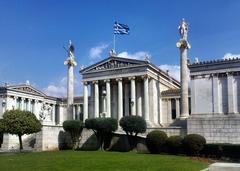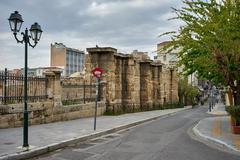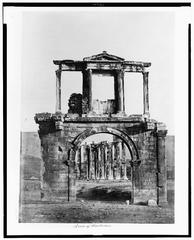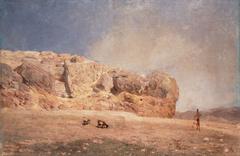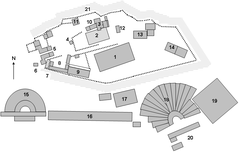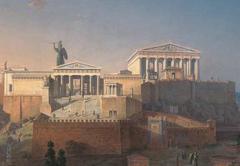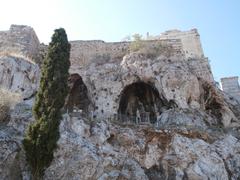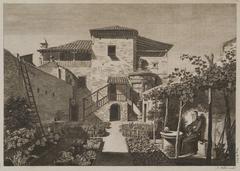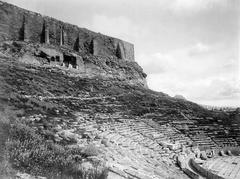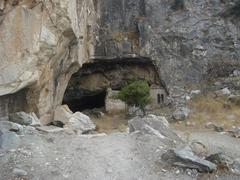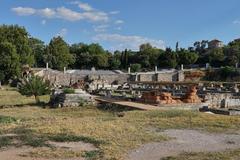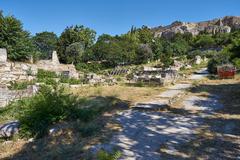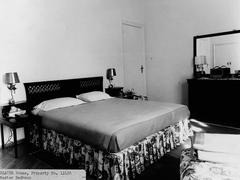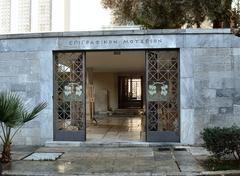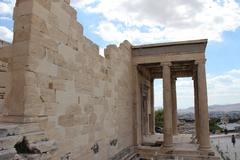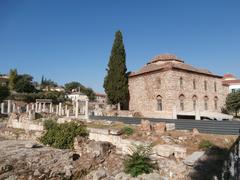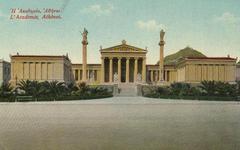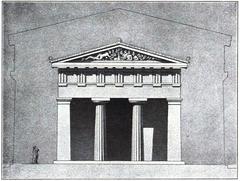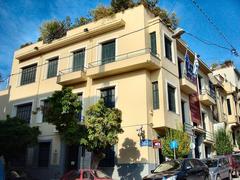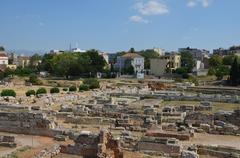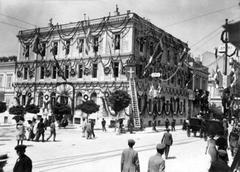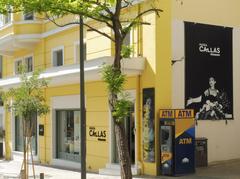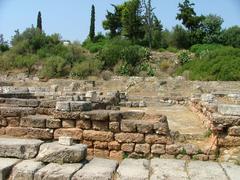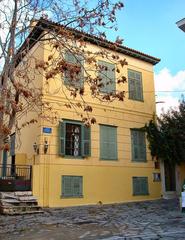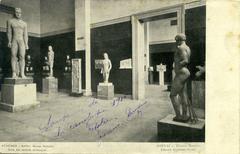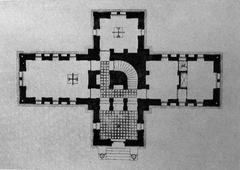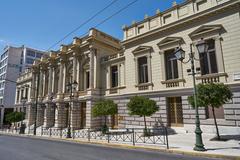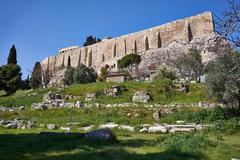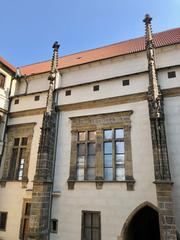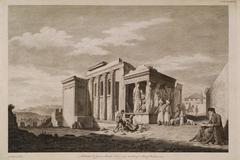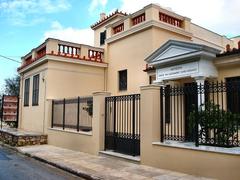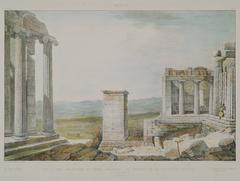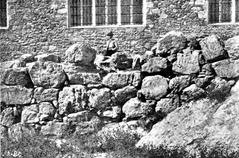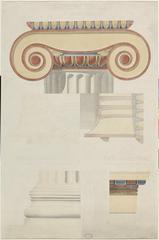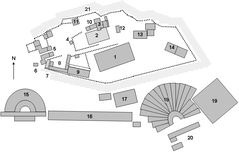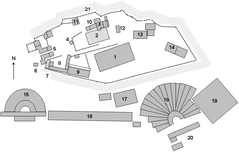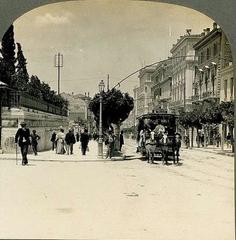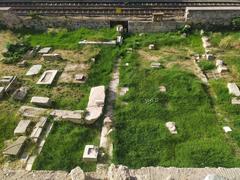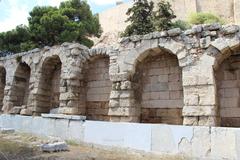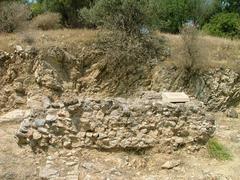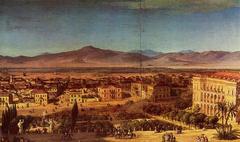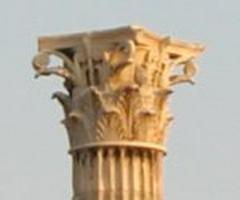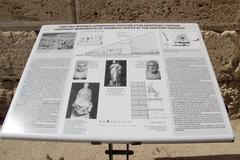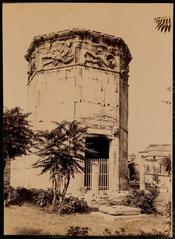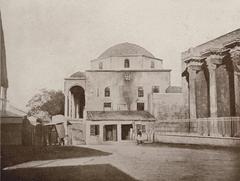Argo Theatre Athens, Greece: Visiting Hours, Tickets, and Attractions Guide
Date: 03/07/2025
Introduction
Greece’s theatrical legacy is embodied in two remarkable sites: the ancient Argos Theatre in the Peloponnese and the contemporary Argo Theatre in Athens. The Argos Theatre, dating to the Hellenistic period and seating up to 20,000, represents a pinnacle of ancient Greek architecture and civic life. In contrast, the Argo Theatre in Athens is a modern hub for artistic innovation, supporting new works and international collaboration through diverse programming and residency opportunities. This detailed guide offers everything you need to know for visiting both venues, including historical insights, visiting hours, ticketing, accessibility, guided tours, nearby attractions, and travel tips. Whether you’re a history enthusiast or a lover of contemporary culture, this guide will help you make the most of your visit to these iconic Greek theatres. (World History Encyclopedia; Acropolis Greece; Argo Arts; Argo Theatre Official; YouGoCulture; This is Athens – Argo Theatre)
Table of Contents
- Introduction
- Argos Theatre (Peloponnese)
- Argo Theatre (Athens)
- Summary and Recommendations
- References
Argos Theatre (Peloponnese)
Historical Context
Argos, one of Europe’s oldest cities, has roots stretching back to the Neolithic and Mycenaean eras. As a major Mycenaean center, it witnessed the rise of Greek civilization, and its theatre reflects the city’s long-standing importance. Built in the Hellenistic period (late 4th–early 3rd century BCE), the Argos Theatre exemplifies the grandeur and ingenuity of ancient Greek architecture. The theatre continued to evolve during Roman rule, adapting to new forms of entertainment and urban development. (World History Encyclopedia)
Architectural Features
- Scale: The Argos Theatre boasts 81 rows of seats cut into the hillside, accommodating up to 20,000 spectators—larger than the famed Theatre of Epidaurus. (YouGoCulture)
- Design: It features a semi-circular koilon (seating area), a circular orchestra, and a skene (stage building), optimized for acoustics and clear sightlines. The natural slope of the hill enhances stability and offers sweeping views.
- Associated Structures: The theatre is set within a civic complex including the agora, stoa, odeum, and nearby sanctuaries, reinforcing its role as a hub of public life. (Acropolis Greece)
Cultural Significance
- Civic and Religious Life: The theatre hosted dramatic competitions, civic assemblies, and religious festivals honoring deities such as Hera and Dionysus.
- Political Importance: It remained a civic focal point through the Roman era and was the site of the 4th National Assembly during Greece’s War of Independence in 1829.
- Influence: Its architectural innovations influenced theatre design throughout the Greek and Roman worlds. (Greece High Definition)
Mythological Connections
Argos is legendary as the home of Perseus and Hercules, and the theatre is steeped in mythological resonance, enhancing the impact of performances staged there. (World History Encyclopedia)
Archaeological Discoveries
Excavations by the French School of Archaeology have revealed Mycenaean tombs, sanctuaries, and extensive civic structures. The site’s continuous habitation complicates but enriches the archaeological record. (World History Encyclopedia)
Visiting Hours and Tickets
- Hours: April–October: 8:00 AM–7:00 PM; November–March: 9:00 AM–5:00 PM. Always confirm via official channels before visiting.
- Tickets: Entry is included in the Archaeological Site of Argos ticket (€6 for adults; discounts for EU youth and seniors; free for children under 18).
- Purchase: Tickets are available at the entrance or through official tourism platforms.
Accessibility and Travel Tips
- Accessibility: Partial. Some areas near the entrance can be accessed by ramps, but most seating involves steps and uneven terrain. Contact management ahead for assistance.
- Guided Tours: Offered by local agencies and the archaeological museum. Early morning or late afternoon visits are recommended to avoid the heat. Wear comfortable shoes and bring water.
Nearby Attractions and Events
- Sites: Explore the ancient agora, Larissa Hill acropolis, and the Archaeological Museum of Argos. The neoclassical railway station and St. Peter’s Basilica are also noteworthy.
- Events: Occasional performances and festivals are held in the theatre during summer months. Check local event listings for details.
FAQs
- Q: What are the opening hours?
A: 8:00 AM–7:00 PM (summer), 9:00 AM–5:00 PM (winter); confirm locally. - Q: How do I buy tickets?
A: On-site or via official online platforms. - Q: Is the theatre accessible?
A: Partially; contact ahead for assistance. - Q: Are guided tours available?
A: Yes, through the museum or local agencies.
Legacy and Recommendations
The Argos Theatre stands as a testament to Greek civic, religious, and artistic achievement. Its preservation allows visitors to connect directly with the roots of Western theatre. Plan your visit alongside other historic sites in Argos for a deeper cultural experience. (World History Encyclopedia; Acropolis Greece)
Argo Theatre (Athens)
History and Mission
Founded in the early 21st century, the Argo Theatre and Arts Organization is a multidisciplinary hub supporting artistic innovation, collaboration, and cross-cultural exchange in Athens. Its mission is to nurture both emerging and established artists through resources, residencies, and public programming. (Argo Arts)
Venue and Programming
- Location: Main venue at 13-15 Elefsinion Street, Metaxourgeio; additional studios and accommodations in the Kypseli neighborhood.
- Main Stage: Hosts contemporary Greek and international plays, often exploring social and psychological themes.
- Children’s Theatre: Features innovative works for young audiences.
- Special Events: Includes readings, guest performances, and collaborations with festivals.
- Residency: The Argo Arts residency program welcomes artists, writers, and scholars for periods of two weeks to three months, fostering both independent and collaborative work. (Argo Arts Open Calls)
Visiting Hours and Ticketing
- Performance Days: Box office open from 5:00 PM; shows start in the evening (typically 7:00–10:30 PM, Thursday–Sunday).
- Tickets: €12–€18 for main stage; €8–€12 for children’s theatre. Purchase online, by phone, or at the box office. Advance booking is advised. (Argo Theatre Official)
Accessibility
- Venue: Step-free entry and accessible restrooms. Contact staff in advance for specific accommodations.
- Neighborhood: Kypseli and Metaxourgeio are accessible by metro, bus, and taxi. Some older buildings and streets may have uneven surfaces; plan accordingly. (Sage Traveling; Accessible Routes Athens)
Residency Programs
- Duration: 2 weeks–3 months, with seasonal open calls (e.g., Fall 2025: September 15–December 15). Early bird and final deadlines apply.
- Application: Submit form, project proposal, CV, and work samples. Selection is based on artistic merit and community engagement potential.
- Facilities: Studio and rehearsal spaces, technical support, networking, and public programming opportunities. (Argo Arts Open Calls)
Nearby Attractions
- Cultural Sites: National Archaeological Museum, Pedion tou Areos park, Plateia Agiou Georgiou, Exarchia and Plaka neighborhoods, Acropolis, Monastiraki Square, and the Benaki Museum.
- Dining & Nightlife: Kypseli and adjacent areas offer multicultural dining and vibrant nightlife.
- Art Scene: Numerous galleries, performance venues, and open-air cinemas enrich the local creative landscape. (Argo Arts; Only Earthlings; Athens Cabs)
Practical Tips
- Transport: Metro stations Victoria and Omonia are within walking distance; taxis are recommended for late-night or accessible travel.
- Language: English is widely spoken at venues; most performances are in Greek, but special events may offer surtitles.
- Amenities: Comfortable seating, accessible restrooms, and friendly staff. No on-site café, but local options abound.
FAQs
- Q: When is Argo Theatre open?
A: Performance days, typically Thursday–Sunday evenings; check the official website for schedules. - Q: How do I buy tickets?
A: Online, by phone, or at the box office. - Q: Is the venue wheelchair accessible?
A: Yes. Contact in advance for special needs. - Q: Are guided tours available?
A: Not regularly, but may be arranged for special events. - Q: What attractions are nearby?
A: Numerous museums, parks, and historic neighborhoods.
Summary and Recommendations
The ancient Argos Theatre and contemporary Argo Theatre in Athens together illustrate Greece’s unbroken tradition of theatrical excellence, from myth and civic ritual to innovative modern drama. Visitors to Argos can immerse themselves in the grandeur of Greek antiquity, while those in Athens can experience the dynamic pulse of today’s cultural scene. For a rewarding visit, plan ahead: confirm hours and ticketing, consider accessibility needs, and explore nearby attractions to enrich your journey. Utilize official resources, the Audiala app, and guided tours for enhanced experiences.
Whether you’re enthralled by ancient stone seats or captivated by modern performances, these theatres offer a journey through Greek history, creativity, and community. For the latest updates and detailed information, consult the official websites and cultural platforms. (World History Encyclopedia; Acropolis Greece; Argo Arts; Argo Theatre Official; YouGoCulture; This is Athens)
References
- World History Encyclopedia – Argos
- Acropolis Greece – Ancient Greek Theatre Typology
- Argo Arts – Official Site
- Argo Theatre Official – Athens
- Sage Traveling – Athens Disabled Access
- Res Artis – Argo Residencies
- This is Athens – Argo Theatre
- YouGoCulture – Argos
- Only Earthlings – Best Places in Athens
- Athens Cabs – Places to Visit
- Accessible Routes Athens
